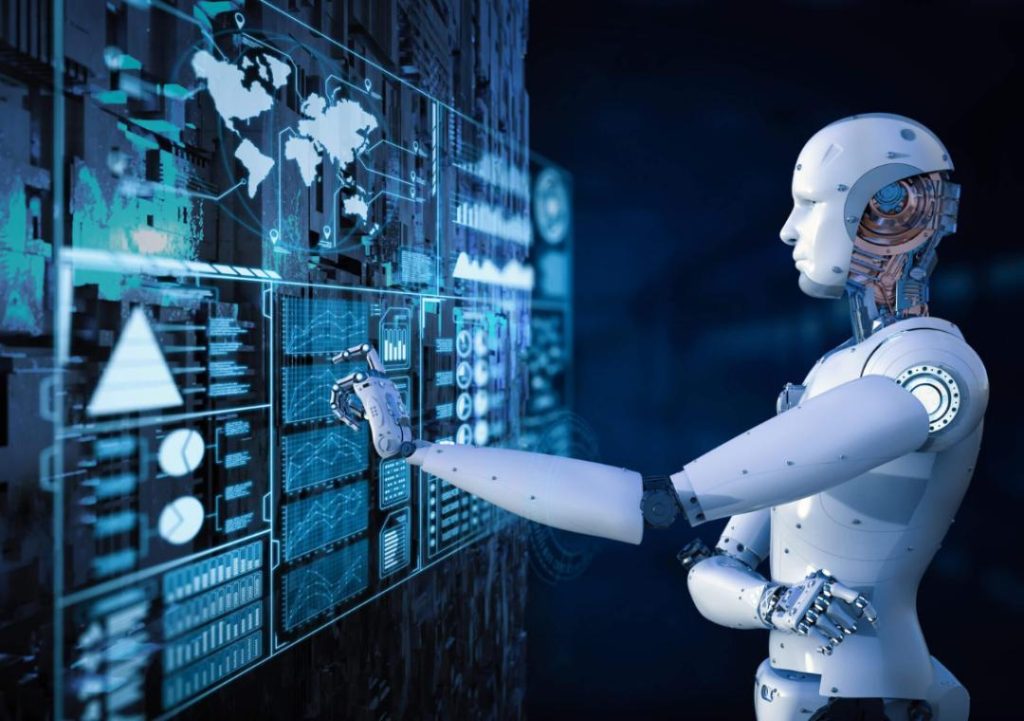
AI & Automation: The Productivity Power Duo
In today’s fast-paced business landscape, companies are constantly seeking ways to boost productivity, streamline processes, and drive efficiency. One powerful solution that’s gaining traction is the combination of Artificial Intelligence (AI) and Automation (RPA). When integrated, these two technologies form a dynamic duo that can revolutionize the way businesses operate. In this post, we’ll explore the benefits of AI & Automation, how they work together, and the impact they’re having across industries.
What is Intelligent Automation?
Intelligent Automation, also known as RPA 2.0, is the next generation of Robotic Process Automation (RPA). While traditional RPA focused on automating repetitive, rule-based tasks, Intelligent Automation takes it a step further by incorporating AI and machine learning capabilities. This allows bots to not only perform routine tasks but also make decisions, learn from patterns, and adapt to new situations.
How AI & Automation Work Together
Imagine a scenario where a customer service team receives a high volume of inquiries, each requiring a specific response. Traditional RPA would automate the task of responding to these inquiries, but Intelligent Automation takes it further. AI-powered bots analyze the inquiries, identify patterns, and develop responses in real-time. This not only saves time but also ensures that customer queries are answered accurately and efficiently.
Here’s a breakdown of how AI & Automation work together:
- Automation: Bots take over routine, repetitive tasks, freeing up human resources for more strategic work.
- AI: Machine learning algorithms analyze data, identify patterns, and make decisions, allowing bots to adapt to new situations.
- Integration: AI-powered analytics integrate with automation workflows, enabling bots to learn from data and improve decision-making over time.
Benefits of AI & Automation
So, what are the benefits of combining AI and Automation? Let’s explore some of the key advantages:
- Increased Efficiency: Automation ensures that routine tasks are completed quickly and accurately, freeing up human teams to focus on high-value tasks.
- Improved Decision-Making: AI-powered analytics provide valuable insights, enabling businesses to make data-driven decisions and optimize processes.
- Enhanced Customer Experience: By automating routine tasks and providing accurate, timely responses, businesses can improve customer satisfaction and loyalty.
- Scalability: Intelligent Automation allows businesses to scale quickly, without the need for significant investments in infrastructure or human resources.
- Cost Savings: Automation reduces the need for manual labor, minimizing labor costs and improving overall financial performance.
Industries Leading the Way
AI & Automation are transforming industries across the globe. Here are a few examples:
- Finance: Banks and financial institutions are using AI & Automation to streamline loan processing, account reconciliation, and customer service.
- Healthcare: Healthcare providers are leveraging AI & Automation to automate electronic health records, streamline medical billing, and improve patient engagement.
- Manufacturing: Manufacturers are using AI & Automation to optimize production lines, predict maintenance needs, and improve supply chain management.
- Customer Service: Customer service teams are adopting AI-powered chatbots to provide 24/7 support, reducing response times and improving customer satisfaction.
Challenges and Opportunities
While AI & Automation are revolutionizing the way businesses operate, there are challenges to overcome:
- Data Quality: AI & Automation require high-quality data to function effectively. Businesses must ensure that their data is accurate, complete, and well-organized.
- Change Management: Adopting AI & Automation requires significant changes to business processes and employee roles. Companies must develop effective change management strategies to ensure a smooth transition.
- Ethical Considerations: AI & Automation raise ethical concerns around job displacement, bias in algorithms, and data privacy. Businesses must prioritize transparency, accountability, and responsible AI development.
Conclusion
The combination of AI and Automation is a powerful force that’s reshaping efficiency across industries. By automating routine tasks and leveraging AI-powered analytics, businesses can improve productivity, reduce costs, and enhance customer experiences. As AI & Automation continue to evolve, we can expect to see even more innovative applications across industries. Whether you’re a business leader, IT professional, or simply interested in staying ahead of the curve, understanding the power of AI & Automation is essential for success in today’s fast-paced business landscape.
Source:






